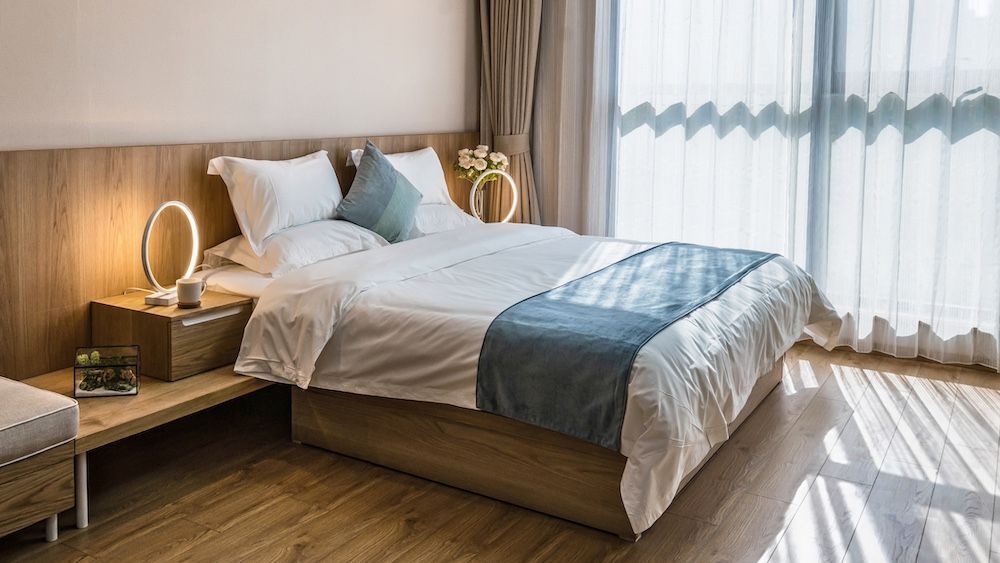Airbnb vs Rental Property: Which Is Right For You?

It's almost impossible to discuss Airbnb without speaking of Uber. We’ll try not to belabor the similarities between the two industry-disrupting apps, but they’re worth noting nonetheless.
Airbnb and Uber are the two spearheads of the sharing economy, and a few reasons for their success overlap. Both remove many of the expenses and inconveniences of organizing rooms and rides and enable you to book with the press of a few buttons instead of frustrating phone calls.
Where Airbnb and Uber differ is how widespread their impacts are.
Ubers have impacted taxis the most, whereas Airbnb has disrupted the hotel and traditional long-term rental industries.
Would-be long-term rental units are being transitioned into Airbnb spaces. This article will address which direction you should go if you’re struggling to decide between the two.
Why Are Would-Be Rental Units Turning Into Airbnbs?
Let’s revisit our Uber analogy for a second.
Previously, to drive people around for a living, you needed an actual taxi or limousine and some form of a vehicle-for-hire driver’s license (in most places). Then came Uber, and people had the technology to turn their personal vehicles into vehicles for hire.
Once upon a time, rooms “for hire” were only available at hotels, bed-and-breakfasts, and motels. Then, Airbnb came along. From there, people could transform their properties into hotels with
relative
ease.
Without the disruptive homestay marketplace app, people aiming to earn income from their units and properties had limited options. They couldn’t treat their homes as hotels or BNBs. They had to rent to tenants through leasing contracts.
This preamble begs the question: Should you transform your property into an Airbnb or a rental unit now that it can seemingly be done with the mere download of an app?
Spoiler:
It comes down to what works best for you. However, the discussion points below will shed light on how running an Airbnb—while not without its advantages—isn’t the seamless license to print money it appears to be.
Revenue And Income Versus Profits.
There’s no denying that traditional renting limits your earnings based on the lease agreement. The contract is the contract.
We will note how landlords can increase rent in Pennsylvania. Still, on-the-spot increases can get complicated and adversely impact landlord-tenant relationships.
Airbnbs are more flexible with pricing because the living situations are more short-term. You can adjust the amount you charge based on seasonal demand, and long-term agreements won’t hamstring you.
The previous two paragraphs might position running an Airbnb more favorably but fail to paint the complete picture.
For one, an Airbnb typically necessitates higher upfront costs. The rental should be fully stocked and furnished. Plus, you’ll have the ongoing expenses of keeping the property in ideal condition.
Often, hiring staff or property management services for your Airbnb is necessary. While these are factors for long-term rentals, such services cost exponentially more for short-term rentals because the required labor is more frequent and intensive.
We’ll delve further into associated expenses in the next section.
All the same, we already see the tension between income revenue and profits at play. Earning more upfront doesn’t guarantee a better bottom line.
Associated Expenses.
While the upfront revenues/income earned with an Airbnb might be appealing, the overhead expenses quickly dwindle that money away.
Here are a few costs associated with running an Airbnb:
Bedding.- Top-tier furniture and decor.
- Kitchen utensils.
- Towels.
- Appliances.
- Coffee, tea, sugar, and other standard food items.
- Cable TV.
- WiFi.
- Utilities.
- Cleaning fees.
Traditional renting might not always cause you to salivate with the upfront income (in comparison with Airbnb). Yet, the fewer associated expenses can make it likelier to profit.
To the above point, you generally only pay for the sewage, water, trash removal, and garden maintenance of conventional rental units.
Reliable Income.
It’s unfair to say you can’t thrive with an Airbnb. There’s a reason it’s become so ubiquitous throughout society.
Nevertheless, running an Airbnb is a constant grind. You’re continually turning over guests, meaning you must book new guests constantly. It never ends, and there’s no guarantee that you’ll keep getting bookings.
What happens if things slow down or there’s an economic downturn? Even worse, a problematic guest can leave you a negative review (or you can have a string of bad luck), and demand for your space can disappear entirely.
Suddenly, you’re paying for a property that isn’t generating income without any promise of future revenues.
Traditional landlords are subject to economic downturns and bad reviews, as is every business in today’s landscape. But the results tend to be far less volatile than short-term arrangements like an Airbnb.
When someone signs a traditional rental lease, they’re on the hook for paying rent for as long as the lease dictates. You don’t have to worry about filling vacancies by the day. The money will keep coming in like clockwork.
Also, say you have issues with a traditional tenant. They aren’t leaving in a few days with a bad taste in their mouth.
Instead, you have ample time to smooth things out and cultivate an amicable relationship.
Regulatory Snafus And Legal Considerations.
Airbnb continues to rise in popularity, gaining the attention of regulatory bodies.
Combine the
rising regulations on these short-term rental units with
short-term rental laws that vary by state, and you might have yourself a raging headache trying to make sense of it all.
Additionally, short-term rentals in Philadelphia require a
zoning permit, which has relatively steep associated costs. Skipping this step could result in hefty fines.
Traditional rental licenses are needed in Philly, too. However, they’re
comparatively affordable versus short-term units.
Property Damages.
Guests staying in an Airbnb aren’t there for the long haul, so they are less invested in keeping your property in good shape.
A traditional renter is committed to your space and more inclined to take care of it. It’s much easier to hold them accountable for potential property damage (not that this should be a significant concern with sound tenant vetting processes).
We’ll note how property damage isn’t pervasive when running an Airbnb property.
Still, tracking who’s done what becomes far more challenging with such a high level of guest turnover.
The Final Verdict.
Everybody's skill sets and aptitudes differ. You might be better suited to owning an Airbnb-style short-term rental property—in which case, don’t let us stop you!
That said, through our experiences, we’ve observed that traditional renting is a far more reliable source of income, absent of the volatility and pain points associated with Airbnb.
None of this is to say conventional renting guarantees mass profits and a healthy bottom line. The soundness of your strategy and approach as a landlord will dictate your success (or lack thereof).
Want to heighten your chances of success when renting out a traditional unit? Work with a trusted property manager like GM Holdings.
Contact us today to learn what we can do for you and your rental property.





